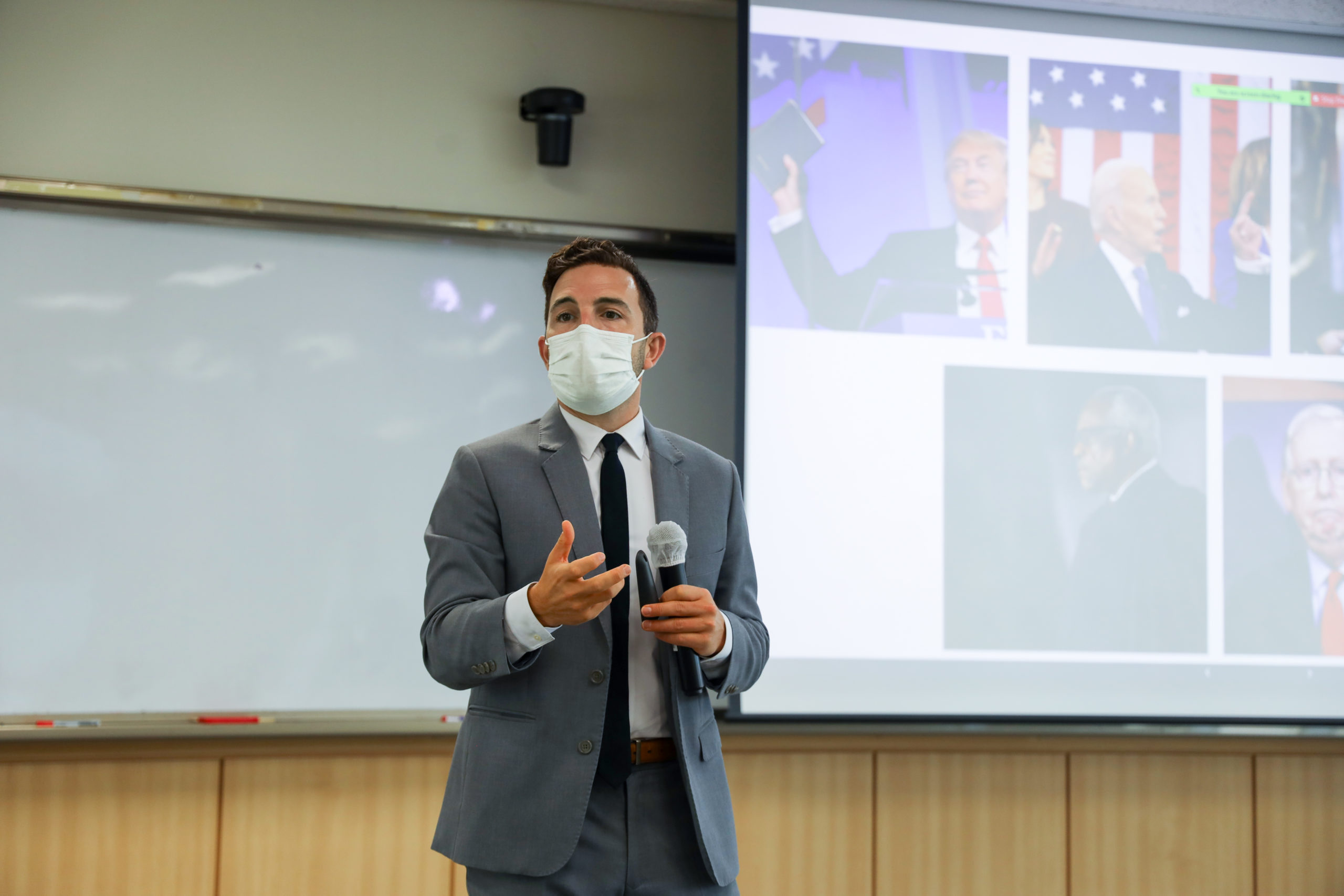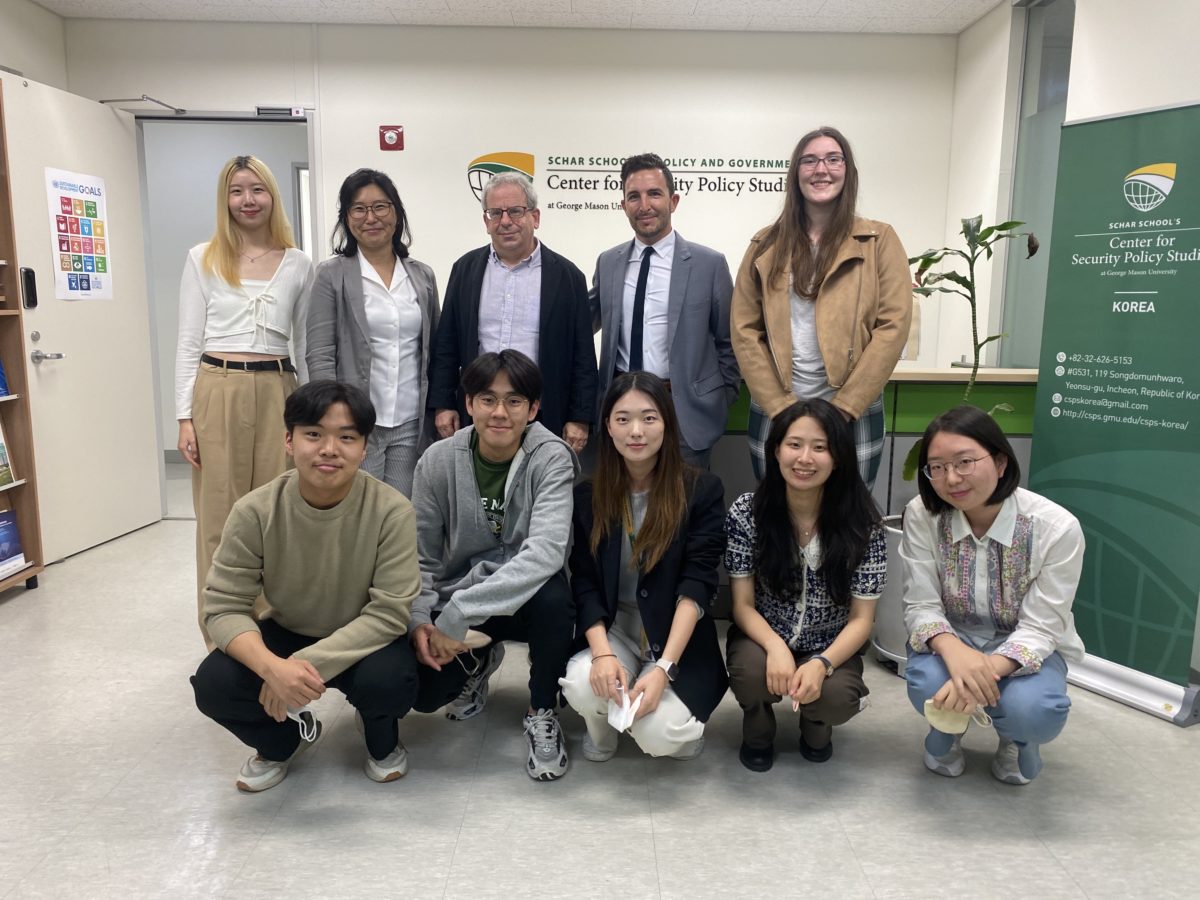


On October 5th, Dr. Justin Gest, an associate professor of policy and government at George Mason University’s Schar School, visited Mason’s branch campus in Songdo, South Korea. During his visit, Dr. Gest held an amazing session detailing the findings of his new book Majority Minority. In addition to discussing his findings on demographic change, the session also addressed the implications of America’s predicted majority-minority milestone on the 2022 midterm elections.
In 2015, a census report stated that by 2044, the United States population will become a majority-minority. This means that the most populous race in the country will no longer be White. Dr. Gest opened his session with the statement that America has always been a delicate experiment of a diverse democracy. The country itself is built on immigration. This demographic change has led the country to develop of unique national identity. Dr. Gest’s novel addresses Americans’ existential grappling with the question “Who are we?” He proceeded to provide the political background on the issue. He explains the difference between Trump’s anti-immigration policy, which appeals to a sense of historical nostalgia and segregation, and Biden’s more future-focused platform. This has led the majority-minority milestone to be primarily feared by Republicans and embraced by Democrats.
In Dr. Gest’s book, he utilizes a comparative analysis of several island nations that have already achieved a majority-minority milestone. These nations are Singapore, Bahrain, Mauritius, Trinidad and Tobago, and Hawaii. He also notes the case of New York, which experienced a mass influx of Irish immigrants after the Great Potato Famine. Each of these examples provides information as to how societies of the past have responded to demographic change. The presentation also touched on topics such as the pathways of majority-minority milestones, how states exert control, ways to overcome nationalism and five pivots on which societies can progress toward inclusivity.
After his presentation, some interesting questions were asked that were closely related to his talk. One of the most impressive questions dealt with the issues of racism and ethnicity and their relation to immigration. The session closed with a question on how people can know whether or not their choices are cultivating an inclusive society. To this, Dr. Gest said there are three questions we should ask ourselves. Is the decision building up boundaries or breaking them down? Is the decision facilitating inter-group contact or segregation? Lastly, does the decision facilitate trust in the institution and trust between people or undermine it? With these questions, we can bridge the divide between the majority and the minority.




